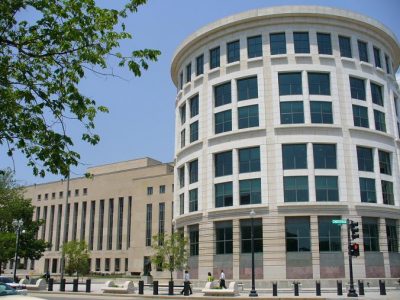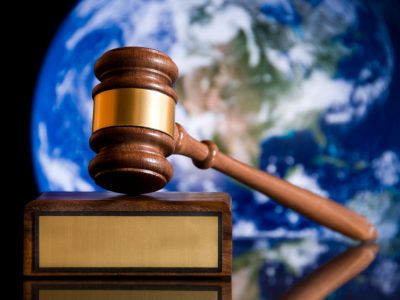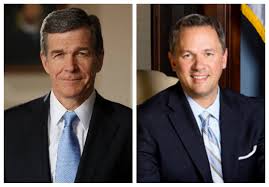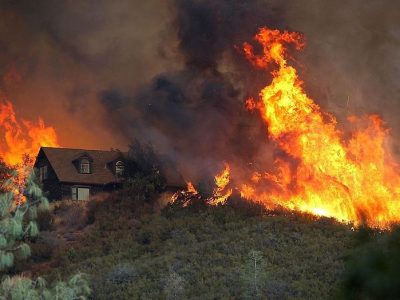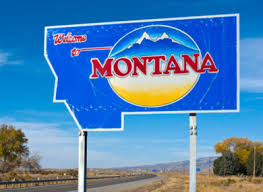Trump’s ACE Rule Hits a Judicial Speed Bump
The judges seemed skeptical of Trump’s Affordable Clean Energy rule last week
The D.C. Circuit Court of Appeals heard oral arguments about Trump’s Affordable Clean Energy (ACE) rule last week. The ACE rule is a feeble substitute for Obama’s Clean Power Rule, which was Obama's signature climate action regulating power plants. The argument went badly for the Trump folks. Even Judge Justin Walker, a 38-year-old whose main qualification was being a protégé of Mitch McConnell, was skeptical about the ACE rule. The Trump ACE rule was pretty m...
CONTINUE READINGBattle for the Senate: South Carolina
No one thought the South Carolina Senate seat would be in play six months ago.
As chair of the Senate Judiciary Committee, Lindsey Graham is in the spotlight this week due to the Barrett nomination. I didn't originally have his seat on my list of Senate races to watch. However, although the race still leans in his favor, the seat is now considered to be in play. It's worth comparing his environmental views with those of his opponent, Jaime Harrison. Lindsey Graham (R). His campaign website pledges his support for "Lower taxes. Less regu...
CONTINUE READINGRemoving Climate Liability Plaintiffs from State Court Could Create Logjam in Federal Courts
The U.S. Supreme Court is set to decide a nuanced issue of procedural law that could create a loophole which would dramatically expand the reach of federal appellate jurisdiction and prevent climate plaintiffs from suing oil companies in state court.
As recent extreme heat waves, hurricanes, and wildfires across the country have elevated public concern about the widespread and harmful effects of climate change, the U.S. Supreme Court granted certiorari this month in a climate liability case called BP P.L.C. v. Mayor and City Council of Baltimore. In short, the City of Baltimore sued a variety of oil companies, seeking damages under Maryland state public nuisance law for the oil companies’ contributions to clima...
CONTINUE READING40 Legal Scholars Urge EPA to Withdraw Proposed Ozone NAAQS
EPA’s newest ozone rulemaking has failed to meet even the deferential standard of arbitrary and capricious review.
This blog is co-authored with Sean Hecht. On October 1, 2020, on behalf of 40 environmental and administrative law scholars affiliated with 33 universities in 18 states, Sean Hecht and I filed a comment letter urging EPA to withdraw its decision to keep the National Ambient Air Quality Standards (NAAQS) for ozone at the current level. We wrote to express our serious concerns with the role of EPA’s Clean Air Scientific Advisory Committee (CASAC) in developing these s...
CONTINUE READINGFor U.S. Climate Policy, It’s Oct. 2016 All Over Again
We knew Trump would wreck U.S. climate policy. He told us so.
Four years ago this week, I wrote about environmental stakes in the presidential election. The environmental stakes are equally high this time. If anything, Trump's rollbacks of environmental regulations have been more thorough and severe than anticipated. He has also worked hard to open up federal lands and waters to more drilling and mining. One estimate that his policies will result in an additional 1.8 billion tons of carbon in the atmosphere by 2035. I c...
CONTINUE READINGElection 2020: The NC Governor’s race
A tight race pits a moderate Democrat against an anti-regulatory Republican.
Because of North Carolina’s unusual electoral scheme, it has a Democratic Governor (Roy Cooper) and a Republican Lieutenant Governor (Dan Forest). The two are now battling for the governorship. One of the big dividing lines is offshore drilling. Cooper is against oil drilling off the North Carolina coast, while Forest is in favor. Roy Cooper. Cooper’s campaign website mentions the environment briefly, saying that he “launched a Clean Energy Plan to create good...
CONTINUE READINGGuest Contributor Samantha Zurcher: The Current State of Wildfire Liability in California
Wildfires Are Ravaging California. Can Electric Utilities Take the Heat?
In recent years, California has experienced its largest and deadliest wildfires in history, resulting in hundreds of fatalities and more than $50 billion in damage. The confluence of rising temperatures, less rainfall, and strong winds signal that the annual “wildfire season” is here to stay, and will continue to proliferate. Every year, thousands of Californians are evacuated from their homes, and some return to find their communities burnt to ashes. Amid the tragic...
CONTINUE READINGBarrett on Standing & Judicial Deference
Her mentor was Scalia, but her style is more like Souter.
With the help of my research assistant, I've collected cases by Judge Barrett dealing with standing issues and deference to administrative agencies. Both topics are very relevant to the environment.al crisis. You really can't draw firm conclusions about her views on these doctrines, but you can draw conclusions about her style. She sticks close to the facts of the case, considers precedents, and eschews rhetorical flights or discussions of broad issues. There are ...
CONTINUE READINGHow Climate Disruption May Undermine Climate Policy
The long-term harms from climate change over the next decades may undermine support for efforts to reduce emissions
Almost two straight months of wildfires and smoke in California are a tangible sign of the impacts of climate change on our lives and our world. This article from the New York Times a couple of weeks ago does a good job of laying out why the wildfires in California are only one example of the impacts we will all face from climate change over the coming decades – and how those impacts will only increase. The article also does a good job of noting how even aggressive act...
CONTINUE READINGElection 2020: The Montana Governor’s Race
The two candidates are neck-in-neck. But their environmental views aren’t close.
Last week, I posted about the Montana Senate race. Montana also has a tight race for governor. The candidates are the current Democratic Lieutenant Governor Mike Coney and House Republican Greg Gianforte. Coney is a long-time figure in state politics. Gianforte founded a “customer relationship software company.” He got national attention in 2017 when he assaulted a reporter and knocked him down. Gianforte pled guilty, did community service, apologized, and donat...
CONTINUE READING



